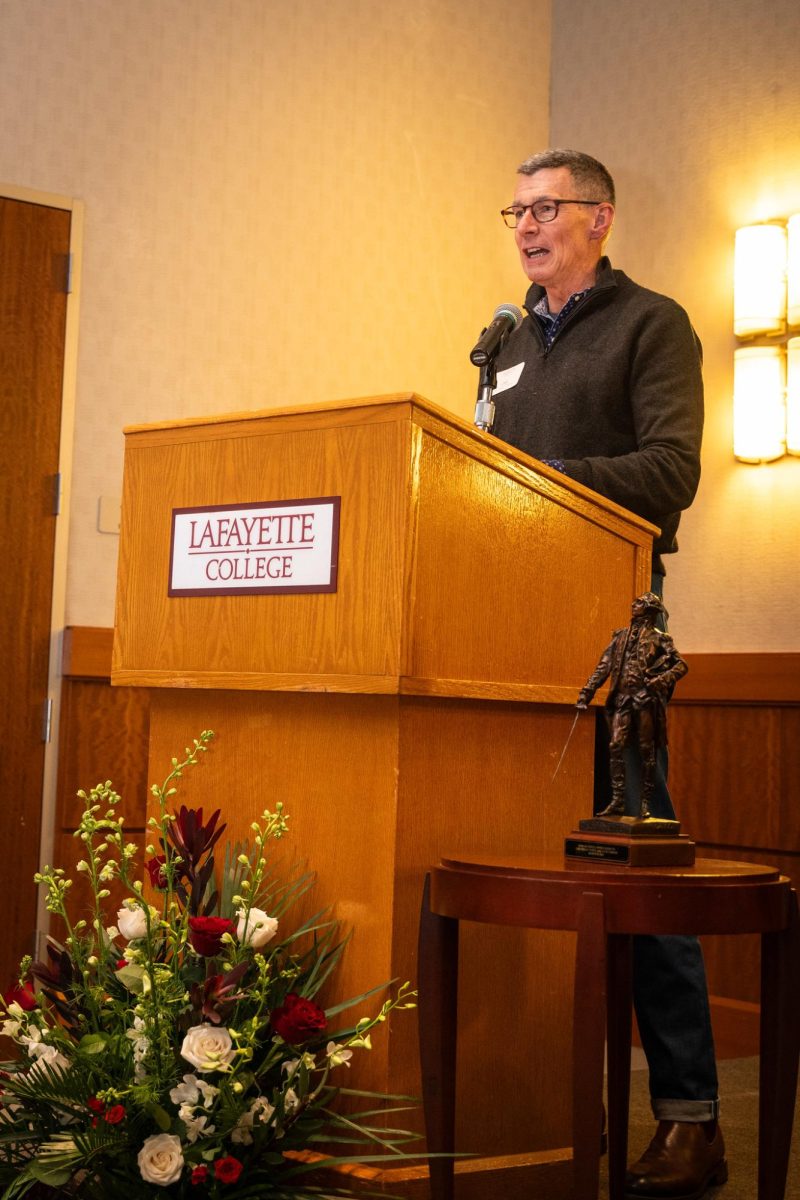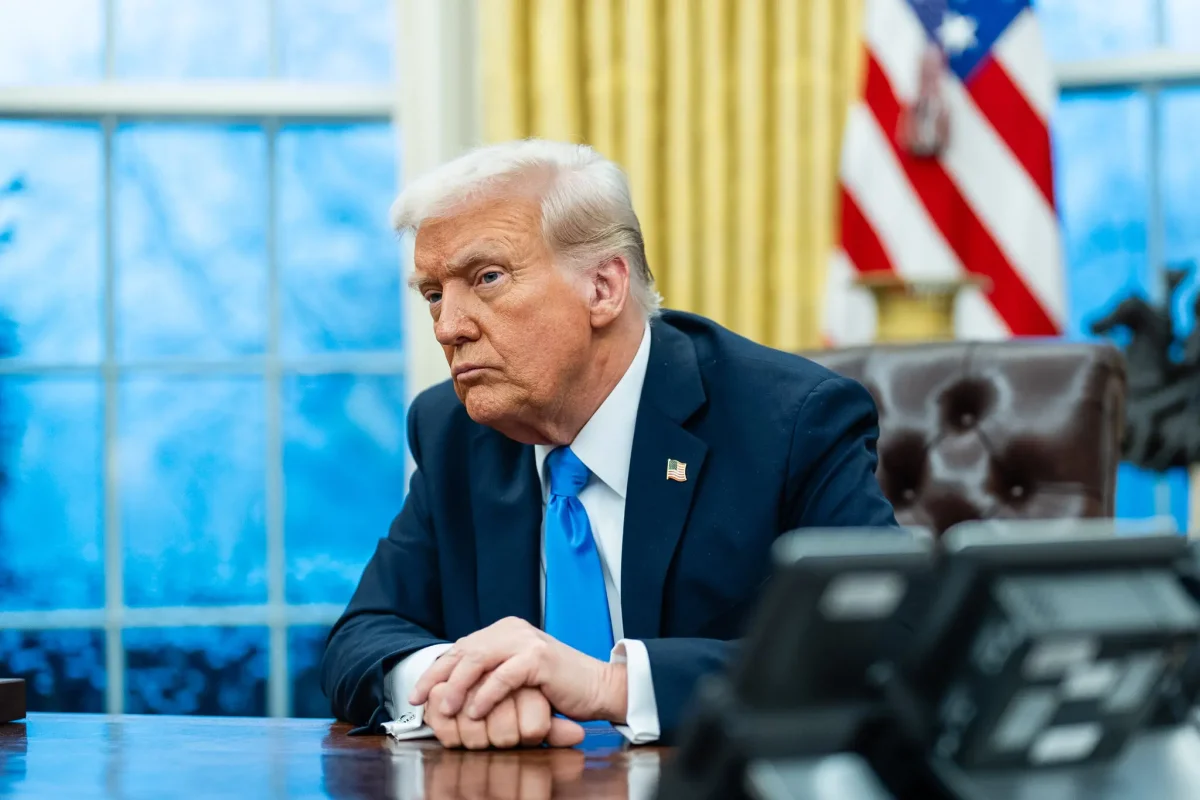How The Lafayette ended up at financial risk
By The Lafayette Staff
In 2005, The Lafayette was sitting pretty. Pennsylvania’s oldest college newspaper was adequately funded by Lafayette College Student Government, had $106,000 in a special account and enjoyed healthy advertising and subscription revenues.
Flash forward a decade: The Lafayette already spent its student government allocation for the entire year 2014-15, and does not have enough money left in its special account to cover $17,000 in costs to publish until the end of the semester. Subscriptions and ad revenues are in the basement.
Gone are the days of weekly dinners, and attending national college media conferences. No more pizza on Wednesday nights while the staff spends eight hours to put the paper to bed. Even with a stripped-down budget—and an emergency appropriation of $5,170 that may come from student government—The Lafayette expects to end this semester with between $3,000-$8,000 to its name and an anticipated $33,000 in annual costs for the coming year.
Since 2008, student government has given between $7,870 -$12,000 per year to newspaper. Unless student government can, and will, more than double annual newspaper allocation for 2015-16, or another source of revenue can be found, the newspaper may be forced to shut down.
The announcement last week that The Lafayette is in such bad shape caught students and faculty by surprise, said Editor-in-–Chief William Gordon ‘17. Even The Lafayette staff was unaware the extent of the financial woes.
“We’re still trying to figure out the record-keeping, ” said Gordon, who assumed leadership after the former editor-in-chief left school abruptly last November. “It appears that everyone, including college administrators, newspaper staff and student government, made mistakes in the past 10 years of the newspaper’s history.
”I’m deeply concerned about the future of The Lafayette,” Gordon added.
In the past decade, the economy tanked, printing costs rose and advertising dollars dried up. The Lafayette did have a buffer, a $106,000 special account held in an off-campus bank in violation of college regulations that was brought to the attention of the college administrators in 2004. The editors were ordered to transfer the account to the controller’s office and use it to defray expenses, according to Director of Student Leadership Pam Brewer.
Student government continued to fund the paper beyond its printing expenses, even after the outside account was discovered. In 2006, for example, the paper received $20,000. But in 2008, student government slashed its allocation to just $7,870, according to Brian Mason ’08, who was editor-in-chief that year.
“They said, no, you guys have all this money….you should be able to cover more of your expenses,” Mason said. He said he wrote to the administration protesting the cuts and the practice of drawing heavily from the special account for core expenses, but never received a satisfactory answer.
And so the practice of drawing up to $18,000 each year from the special account to cover the unfunded newspaper costs began.
As Mason predicted, the money ran out.
Why didn’t anyone notice before now? Part of the answer lies in the unique situation of the newspaper. Despite generating a fair amount of money and spending more, the paper doesn’t actually pay its own bills. That function lies with Brewer’s office and an assistant named Kelly Deemer.
In an interview this week, Deemer freely admitted her accounting methods were inconsistent. Revenue and expenses were often lumped into the same category. Ads and subscriptions are considered miscellaneous credit. Total expenses are very difficult to determine.
Deemer said she was aware the paper was running out of money. Asked if she ever warned the staff of the problem, Deemer said no, but added: “Obviously, once the money runs out…I’m sure the plan was you (The Lafayette) would be going to student government and asking them for more money now that you don’t have that other money.”
Asked if he was aware of any such plan, Gordon said, “No.”
Brewer said it was up to The Lafayette to keep better track of its expenses. “We don’t control [student organization] accounts,” Brewer said. “It’s up to them.”
Managing Editor of The Lafayette, Aaron Levenson ‘15, who took over the job and the paper’s finances this semester, agreed: “In hindsight, It’s clear the staff should have keep records, but between staff rotation every year, the fact we weren’t in charge of the money or the accounts, I don’t know how that would be realistic.”
Lafayette College Student Government President Aaron Little ’16 was interviewed this week about the organization’s decision to tie any emergency funding it might provide to a requirement that the paper first raise matching funds in ad revenues. Little, who has repeatedly gone on record stating the paper is not in trouble, said the student government body did not get complete records before making its decision, but added, “the paper is in a unique position to raise money.”
Little said that some recent meetings between the newspaper staff and student government did get heated, adding: “This was when the value of the paper was questioned. They took it as a personal insult, but it was never intended as such. We must ask the value of anything we fund.”
When asked if student government was willing to fund the newspaper’s $33,000 total budget in the coming year, Little said: “I’m unable to commit to future spending.”
![Student government funding decreased significantly in 2008, while printing costs have steadily increased. [Graph created by Aaron Levenson ‘15]](https://www.lafayettestudentnews.com/wp-content/uploads/2015/02/graph-good-final-1.jpg)
costs have steadily increased. [Graph created by Aaron Levenson ‘15]









































































































Kenneth A. Briggs • Feb 20, 2015 at 1:11 pm
Re: the comment just sent. I wouldn’t mind if it were a letter to the editor instead. In that case, I’d be glad to make some paragraph markings and add a word or two. Thanks
Kenneth A. Briggs • Feb 20, 2015 at 1:00 pm
As newspaper advisor during the time when alleged “mismanagement” took place, I flatly deny the contention that funds were used illigitimately. It’s bad enough that student government came up with this unverified charge to justify refusing the newspaper’s request for survival funds, but now it seems the newspaper has accepted the validity of the charge. Given the nature of the work required to do the job properly, and the entirely sensible practice of attending the single yearly national convention of college journalists, the expenditures for those items were entirely reasonable and in keeping with policies of college newspapers across the country. This was not profligate spending, neither was there, to my knowledge, a single instance of misappropriation or misuse of funds. In fact, the financial conduct of the paper was, I believe, exemplary. Therefore the effort to exact “punishment” on false accusations skews the discussion from the start. I’m afraid the main participants in this dispute have far too little institutional memory to make adequate decisions. The terms of negotiations are badly flawed to begin with. Student government has been, in my view, unwisely and improperly been assigned the process of allocation of funds to an organization whose difference from other student groups seems poorly understood and who constitute a potential pressure group that can attempt to impose censorship through budgeting. Press freedom is always fragile and there are no greater threats than fiscal and academic sanctions, overt or covert. The paper has big problems of its own, but the staff should address them within the context of a mandate that affords them the ability to do so. Institutions do not feel cordial toward a free press in their midst that is doing its job. To afford sufficient independent while being dependent on institutional largesse is a difficult balancing act.
Kenneth A. Briggs • Feb 20, 2015 at 1:12 pm
see comment on comment below